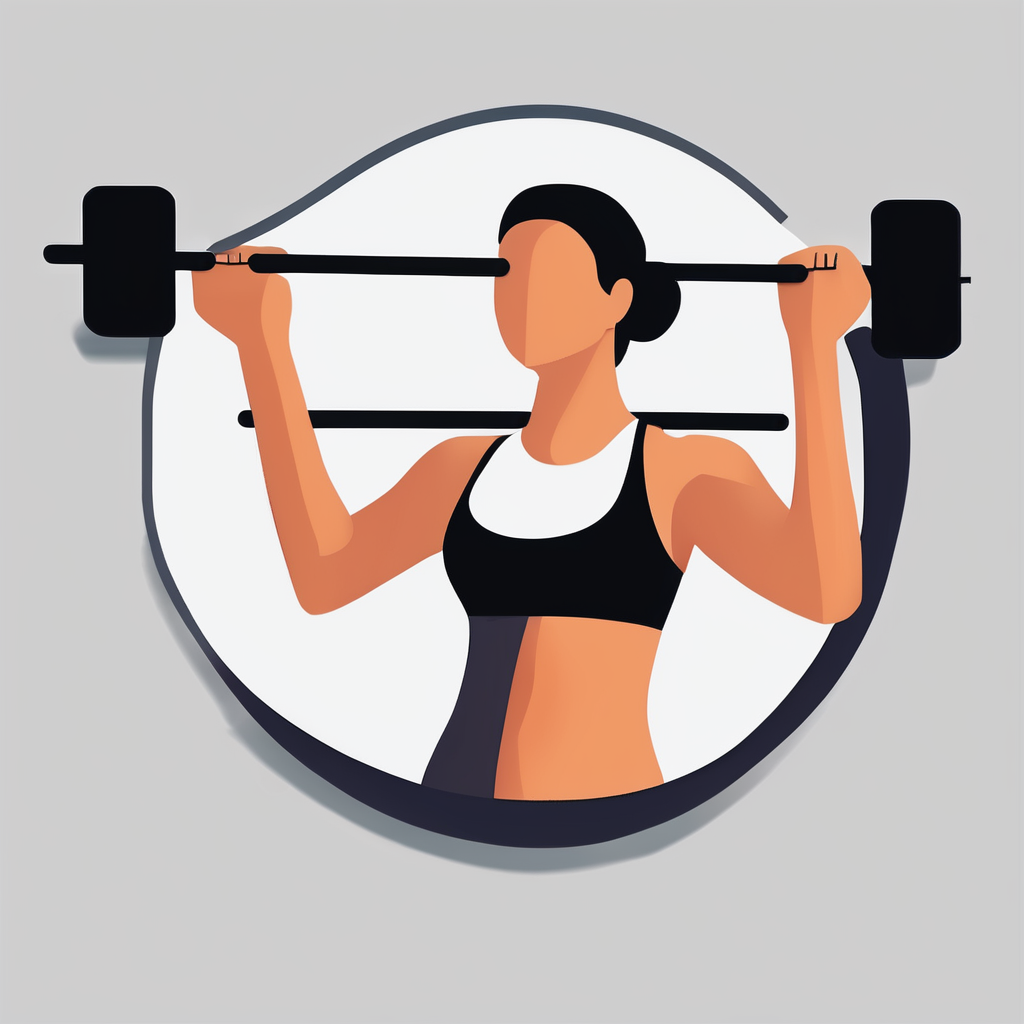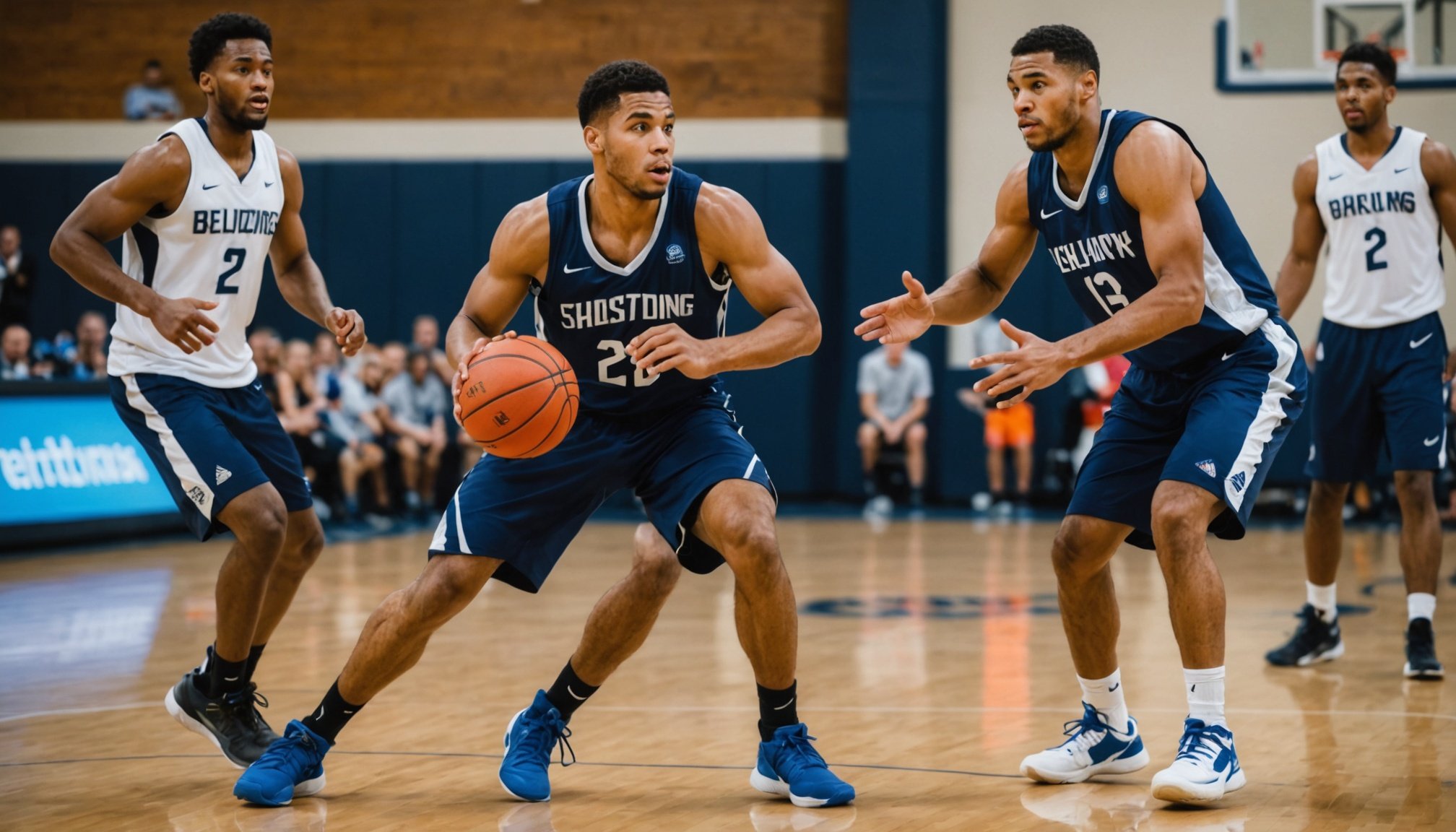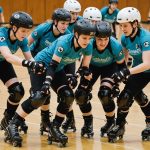Importance of Hydration in High-Intensity Basketball Games
Ensuring adequate hydration during high-intensity basketball games is crucial for maintaining peak basketball performance. Dehydration can severely compromise an athlete’s abilities on the court, impacting everything from endurance and strength to fine motor skills and decision-making.
When players become dehydrated, their physical performance can suffer drastically. Water is essential for regulating body temperature, and a lack of it can result in increased heart rate and body heat. This not only diminishes endurance but can also lead to muscle cramps and fatigue. The decreased oxygen flow to muscles can result in earlier onset of exhaustion, affecting how long a player can compete effectively.
Topic to read : Unlocking Peak Performance: The Role of Hydration in Enhancing Mental Clarity for Esports Athletes
Moreover, preventing dehydration is key to reducing the risk of injuries during games. Research shows that inadequate hydration levels increase the likelihood of injuries such as sprains and strains. Dehydration impairs the body’s ability to cool down, elevating the risk of heat-related injuries and decreasing reaction times, making collisions and falls more likely.
In summary, maintaining proper hydration is not just about quenching thirst; it is about safeguarding an athlete’s performance and health, ensuring they remain at their best throughout the game.
Have you seen this : Unlocking Performance: The Impact of Altitude Training on Endurance Athletes” VO2 Max Enhancement
Understanding Electrolytes and Their Role
When it comes to athletic performance, electrolytes play a crucial role in maintaining optimal function. These electrically charged minerals, including sodium, potassium, and magnesium, are vital for athletes like basketball players. They support nerve function, muscle contraction, and fluid balance.
Key Electrolytes for Athletes
Basketball players, in particular, require a balanced intake of sodium, potassium, and magnesium to maintain energy levels and prevent cramps. Sodium, found in sweat, aids in maintaining proper fluid balance, while potassium helps with muscle contractions. Magnesium is essential for energy production and muscle relaxation.
How Electrolytes Support Performance
Electrolyte imbalance can lead to decreased performance and poor hydration. Sodium, magnesium, and potassium work together to ensure muscles contract and relax efficiently. Without these electrolytes, athletes might experience fatigue, cramping, and impaired muscles.
Sources of Electrolytes
Natural sources like bananas (rich in potassium), nuts (providing magnesium), and sports drinks (which often contain sodium) are excellent options. Commercial electrolyte supplements can offer targeted support, ensuring basketball players maintain optimal levels during intense physical activity. Consuming a varied diet with these sources ensures athletes remain hydrated and perform at their best.
Strategies for Maintaining Hydration
Maintaining optimal hydration is crucial for athletes, and understanding the best hydration strategies can enhance performance and aid recovery. Pre-game hydration is a necessary step to ensure the body is ready for the physical demands ahead. It is generally recommended to consume about 500-600ml of water or sports drinks two to three hours before the event. This helps the body start in a well-hydrated state.
During the game, in-game hydration is vital. It is advised to drink small amounts of fluids at regular intervals, approximately every 15-20 minutes, aiming for about 200-300ml each time. This helps maintain fluid levels, ensuring that athletes do not suffer from dehydration, which can impair physical and cognitive performance.
Post-game hydration is equally important, as it aids recovery and prevents issues like muscle cramps or fatigue. The goal should be to replace 150% of the fluid lost during the game within the first few hours. This can be calculated approximately by weighing oneself before and after the game to determine the weight lost through sweat.
Following these strategies ensures athletes remain in peak condition, ready to perform at their best.
Timing of Fluid and Electrolyte Intake
The timing of fluid and electrolyte intake is pivotal in achieving optimal hydration, especially for those engaging in high-intensity activities.
Pre-Game Fluid Guidelines
In preparation, it is advisable to consume fluids early. Ensuring adequate hydration before activity helps in maintaining performance. Consuming about 500-600 ml of water or a sports drink, which is designed specifically to provide electrolytes, roughly two hours before an event can be beneficial. This strategy allows the body to absorb fluids effectively, bolstering electrolyte levels preemptively.
During Game Drinking Strategies
Keeping in mind that timing is crucial during events, sipping water or an electrolyte solution at regular intervals is recommended. Ideally, athletes should aim to consume 200-300 ml of fluid every 15-20 minutes during the activity. This frequent intake helps in preventing dehydration and maintains a steady level of electrolytes, contributing to sustained performance without risking overhydration.
Recovery Hydration Practices
Post-activity, replenishing fluids is essential. Drinking approximately 1.5 litres of fluid for every kilogram of body weight lost during exercise helps restore the body’s needs. Prioritising a balanced intake of water and electrolytes supports faster recovery and prepares the body for subsequent activities.
Types of Beverages for Optimal Hydration
Choosing the right beverage for hydration is crucial, especially for athletes. Water remains the primary choice due to its simplicity and effectiveness. However, for those engaged in intense or prolonged activities, sports drinks offer added benefits. These drinks contain electrolytes and carbohydrates which can replace salts lost through sweat and provide an energy boost.
In recent years, coconut water has gained popularity as a natural alternative. It’s packed with potassium and other electrolytes, making it an excellent choice for post-exercise recovery. Unlike many sports drinks, coconut water is low in sugar, which can be appealing for those monitoring their sugar intake.
However, different individuals have varying sweat rates and electrolyte needs. Thus, it’s essential to tailor beverage choices according to personal requirements. Calculating sweat loss can help in determining the volume of fluid and electrolytes one needs to consume during or post-exercise.
In summary, while water is ideal for regular hydration, sports drinks, coconut water, and other natural options can be better suited for high-intensity activities. Evaluating your own hydration needs ensures effectiveness in maintaining optimal electrolyte balance and hydration levels.
Practical Tips for Basketball Players
Balancing hydration and nutrition can be tricky for athletes, especially for basketball players aiming for performance optimization. Effective practical hydration strategies can make a significant difference on and off the court.
Creating a Personalized Hydration Plan
To enhance performance, creating a personalized hydration plan is essential. Start by calculating your sweat loss during practice sessions. Measure your weight before and after exercise, taking note of how much fluid you consume. This helps determine how much you need to drink to maintain optimal hydration. Aim to replace about 150% of fluid lost to account for ongoing sweat and urine loss after training.
Hydration and Nutrition Education
Hydration tips are not just about drinking water. Incorporate a balanced diet to retain electrolytes, crucial for maintaining fluid balance. Foods rich in potassium and sodium, such as bananas and nuts, support hydration efforts effectively. Understanding the role of nutrition in supporting hydration deepens comprehension of how to meet your goals.
Expert Recommendations
Sports nutritionists suggest drinking small quantities of fluids regularly rather than consuming large amounts infrequently. Electrolyte-enriched drinks can be crucial post-workout, aiding recovery and helping balance your body’s needs. Integrating these expert insights will empower you to stay hydrated and ready for your next game.





